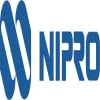Roche’s pharmaceutical head Bill Anderson is departing the Swiss drugmaker after 16 years, months after the company announced its diagnostics division head would take over as chief executive next year.
Anderson, who oversees Roche’s largest division including its drug research and development units, will leave at the end of the year “to pursue opportunities outside of Roche.” A successor will be named by March 2023, Roche said in a statement Monday.
His exit comes five months after the Swiss drugmaker announced its long-serving CEO Severin Schwan would step down, with diagnostics head Thomas Schinecker succeeding him in the role on March 15, 2023.
Anderson was in charge of Roche’s Genentech division before he took over the pharma unit in 2019, replacing Dan O'Day, who left to run Gilead. He joined Genentech’s immunology and ophthalmology business in 2006, three years before Roche acquired Genentech in full.
“Over his 16-year career at Roche, Bill Anderson has demonstrated excellent leadership. He has been instrumental in shaping Roche’s transformation and I wish him all the best for the future,” Schinecker said in a statement.
Anderson’s departure also comes after a year of clinical setbacks for Roche and adds work for Schinecker before he takes the reins as CEO.
Roche’s experimental Alzheimer’s medicine gantenerumab failed two large Phase 3 trials last month, and its immunotherapy tiragolumab fell short in a Phase 3 trial for a common form of lung cancer in May.
The company did have some successes this year, though. In January, Roche won approval of a new treatment for "wet” age-related macular degeneration called Vabysmo that could challenge Regeneron’s lucrative treatment Eylea.

Schinecker will step in as interim head of the pharma division on Jan. 1, the same day he hands off his diagnostics division to Matt Sause, now regional head of North America for diagnostics.
Roche’s diagnostics division has been its biggest growth driver this year, with sales up by 6% in constant dollar terms through the third quarter, somewhat offsetting stalled growth in pharma sales due to exclusivity losses and declining COVID-19 sales.
Diagnostics is one of several areas Roche has sought to bulk up as sales drop for its formerly top-selling cancer drugs Herceptin, Avastin and Rituxan. The company previously forecast that sales of the three would decline by 2.5 billion Swiss francs, or $2.6 billion, in 2022.
New medicines in cancer, hemophilia and musculoskeletal diseases have posted double-digit growth, however.
Also on Monday, Roche said Nestle CEO Mark Schneider and Yale University professor Akiko Iwasaki will stand for election to the board in March. Schwan will also seek election as board chair in March, to succeed Christoph Franz, who is stepping down.














